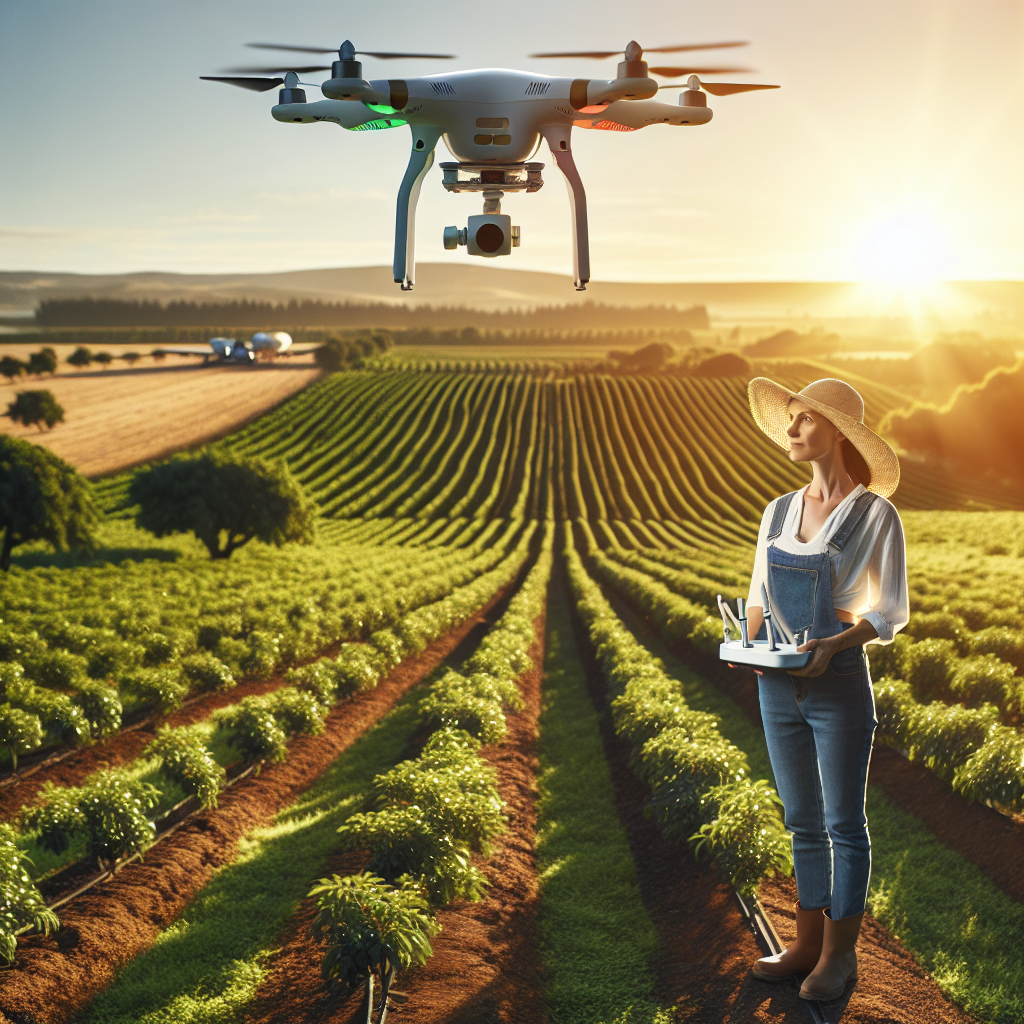Revolutionizing Agriculture: The Benefits of Using Drones in Farming
In today’s rapidly advancing technological landscape, the agricultural industry is undergoing a transformation like never before. One of the most exciting innovations to emerge in recent years is the use of drones in farming. These unmanned aerial vehicles, equipped with cameras and sensors, are revolutionizing the way farmers monitor their crops, improve crop yields, and manage their operations. In this article, we will explore the many benefits of using drones in agriculture and how they are changing the game for farmers around the world.
Increased Efficiency
One of the primary benefits of using drones in farming is increased efficiency. Drones can cover large areas of farmland in a fraction of the time it would take for a farmer to do so on foot or by using traditional machinery. This allows farmers to quickly identify areas of crop stress, pest infestations, or nutrient deficiencies that may need attention. By pinpointing these issues early on, farmers can take corrective action to prevent yield loss and improve overall crop health.
Additionally, drones can be used to monitor crop growth throughout the season, providing real-time data on plant health and development. This information can help farmers make informed decisions about irrigation, fertilization, and pest control, leading to higher crop yields and better quality produce.
Cost-Effective
Using drones in farming can also be a cost-effective solution for farmers. While the initial investment in drones and related technology may be significant, the long-term savings can be substantial. Drones eliminate the need for expensive satellite imagery or manned aircraft for aerial monitoring, saving farmers time and money in the long run.
Furthermore, drones can be used to target specific areas of a field that may need attention, allowing farmers to apply resources more efficiently. For example, instead of treating an entire field with pesticide, a drone can identify areas with pest infestations and apply treatment only where necessary. This targeted approach can reduce chemical usage, saving farmers money on inputs and reducing the environmental impact of agricultural practices.
Precision Agriculture
The use of drones in farming is a key component of precision agriculture, a data-driven approach to farming that aims to optimize crop production while minimizing environmental impact. Drones can collect high-resolution imagery and data on soil characteristics, moisture levels, and crop health, allowing farmers to make precise decisions about planting, irrigation, and fertilization.
By analyzing this data, farmers can create detailed maps of their fields and identify patterns and trends that may impact crop growth. This information enables farmers to tailor their farming practices to the specific needs of their crops, leading to improved yields and reduced waste.
Environmental Benefits
In addition to the economic benefits of using drones in farming, there are also significant environmental benefits. Drones can help farmers reduce their environmental footprint by allowing for more targeted and precise application of inputs such as pesticides and fertilizers. This reduces the risk of over-application, minimizing the potential for runoff into waterways and soil contamination.
Furthermore, drones can be used to monitor soil erosion, track changes in vegetation cover, and detect signs of drought or disease outbreaks. By providing farmers with real-time data on environmental conditions, drones can help them adapt their farming practices to mitigate potential risks and promote sustainable agricultural practices.
FAQs
Q: Are drones legal for agricultural use?
A: In most countries, drones are legal for agricultural use as long as operators comply with regulations set by the relevant authorities. These regulations may include restrictions on flying near airports, populated areas, or wildlife reserves, as well as requirements for certification and licensing.
Q: How much does it cost to implement drone technology in farming?
A: The cost of implementing drone technology in farming can vary depending on the size of the farm, the type of drones and sensors used, and the level of training and support required. In general, the cost of drones for agricultural use can range from a few thousand dollars for a basic model to tens of thousands of dollars for a more advanced setup.
Q: Can drones replace traditional farming practices?
A: While drones offer many benefits for farmers, they are not intended to replace traditional farming practices entirely. Drones are a valuable tool that can augment and enhance existing farming practices, providing farmers with valuable data and insights to improve crop production and sustainability.
In conclusion, the use of drones in farming is revolutionizing the agricultural industry by increasing efficiency, reducing costs, promoting precision agriculture, and improving environmental sustainability. As the technology continues to evolve, drones have the potential to transform the way farmers manage their operations and optimize crop production. By embracing this innovative technology, farmers can stay ahead of the curve and reap the many benefits that drones have to offer.
